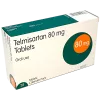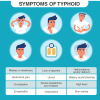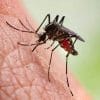No products in the cart.
Malaria – A Life-threatening Disease
Introduction
Malaria, a life-threatening disease transmitted through mosquito bites, has plagued various regions of the world for centuries. While significant progress has been made in combating this deadly illness, it continues to pose a threat to many tropical countries, including the Maldives. This article delves into the reality of malaria in the Maldives, a nation renowned for its breathtaking beauty and pristine beaches. Known colloquially as “Malayria,” this unique blend of the words “Maldives” and “malaria” signifies the persistent fight against the disease within the archipelago. By exploring the history, impact, prevention, and ongoing efforts to eliminate malaria in the Maldives, we shed light on this important public health issue.
Causes of Malaria
Malaria is caused by infection with Plasmodium parasites. There are five species that primarily infect humans: Plasmodium falciparum, Plasmodium vivax, Plasmodium malariae, Plasmodium ovale, and Plasmodium knowlesi. These parasites are transmitted through the bites of infected mosquitoes. When an infected mosquito bites a person, it injects the parasites into their bloodstream, which then travel to the liver and infect red blood cells.
Symptoms of Malaria
The symptoms of malaria typically manifest 7 to 30 days after infection, although in some cases, symptoms may take longer to appear. Common symptoms include fever, chills, headache, muscle aches, fatigue, nausea, and vomiting. Malaria caused by Plasmodium falciparum can lead to severe complications, such as organ failure, cerebral malaria, and even death.
Diagnosis of Malaria
Accurate diagnosis is essential for effective malaria management. Diagnostic methods include:
Blood Tests: Microscopic examination of blood samples to detect the presence of Plasmodium parasites.
Rapid Diagnostic Tests (RDTs): These provide quick results by detecting specific malaria antigens in a blood sample.
Molecular Tests: Polymerase Chain Reaction (PCR) tests can identify and differentiate between different species of Plasmodium, aiding in appropriate treatment decisions.
Treatment of Malaria
Timely and appropriate treatment is vital in managing malaria and preventing severe complications. Treatment options depend on the species of Plasmodium, the severity of the infection, and the individual’s age and health condition. Common antimalarial medications include chloroquine, artemisinin-based combination therapies (ACTs), and other drugs such as mefloquine and atovaquone-proguanil.
Historical Background
The Maldives, an Indian Ocean paradise comprising more than a thousand islands, has long struggled with malaria. The disease’s presence in the country can be traced back to ancient times when it was likely introduced through trade routes. The geographical characteristics of the Maldives, including its warm climate, plentiful water sources, and lush vegetation, provide an ideal breeding ground for malaria-carrying mosquitoes.
Impact on Public Health
Malaria poses a significant health burden on the Maldivian population. The disease is caused by the Plasmodium parasite, which is transmitted through the bites of infected female Anopheles mosquitoes. Symptoms of malaria include fever, chills, body aches, and fatigue. If left untreated, it can lead to severe complications, organ failure, and even death.
The impact of malaria extends beyond individual health. The disease places a strain on healthcare resources, with increased demand for diagnostics, treatment, and prevention measures. Moreover, malaria affects productivity and hinders economic development, as individuals affected by the disease are unable to work or fulfill their responsibilities.
Prevention and Control Measures
Recognizing the grave threat posed by malaria, the Maldivian government, in collaboration with international organizations, has implemented various prevention and control measures. These efforts include:
a. Vector Control: One of the primary strategies in combating malaria is controlling the mosquito population. The Maldivian authorities have focused on reducing mosquito breeding sites, employing larvicides, and distributing insecticide-treated bed nets to vulnerable communities.
b. Case Management: Prompt and accurate diagnosis followed by effective treatment is crucial in combating malaria. The Maldivian health system has strengthened its diagnostic capabilities, ensuring access to quality diagnostic tools and medications for timely treatment.
c. Surveillance and Response: Enhanced surveillance systems allow for early detection and response to malaria cases. This includes monitoring mosquito populations, tracking cases, and deploying rapid response teams to affected areas for further investigation and containment.
d. Public Awareness and Education: Community engagement and public awareness campaigns play a vital role in preventing malaria. Educational programs inform individuals about the disease’s transmission, symptoms, prevention methods, and the importance of seeking early treatment.
Ongoing Efforts and Achievements
The battle against Malayria continues to yield positive results, thanks to concerted efforts from multiple stakeholders. Key achievements include:
a. Significant Reduction in Cases: The Maldives has witnessed a substantial decline in malaria cases over the years. Through consistent implementation of prevention and control measures, the country has successfully reduced the incidence of the disease.
b. International Partnerships: The Maldivian government has collaborated with international organizations, such as the World Health Organization (WHO) and the Global Fund, to strengthen its malaria control programs. These partnerships have provided technical expertise, funding, and support to combat the disease effectively.
c. Malaria-Free Islands: Several islands in the Maldives have achieved malaria-free status. This milestone reflects the successful elimination of the disease on these islands through comprehensive interventions.
d. Research and Innovation: Ongoing research efforts aim to explore new strategies, such as the use of innovative mosquito control methods and the development of new antimalarial drugs. These advancements hold promise for further progress in malaria elimination.
Challenges and Future Outlook
Despite the progress made in combating Malayria, several challenges persist in the fight against malaria in the Maldives.
a. Climate Change and Mosquito Adaptation: Climate change poses a significant threat as it affects mosquito breeding patterns and expands their geographical range. Rising temperatures and changing rainfall patterns can create favorable conditions for mosquito proliferation, potentially leading to a resurgence of malaria. The Maldivian authorities need to remain vigilant and adapt their strategies to counter these environmental changes.
b. Socioeconomic Factors: Socioeconomic factors play a crucial role in the transmission and control of malaria. Poverty, inadequate housing, and limited access to healthcare services can hinder prevention and treatment efforts. Addressing these underlying social determinants of health is essential to sustain progress in malaria elimination.
c. Migrant Workers and Travel-Related Cases: The Maldives is a popular tourist destination and relies heavily on migrant workers. Malaria cases can be introduced into the country through infected individuals traveling from endemic regions. Vigilant surveillance and screening at entry points, coupled with appropriate case management, are vital in preventing the reintroduction of the disease.
d. Antimalarial Drug Resistance: The emergence of drug-resistant strains of malaria parasites poses a significant challenge to malaria control efforts worldwide. The Maldives must closely monitor the efficacy of antimalarial medications and ensure access to effective treatment regimens to prevent the spread of drug resistance.
Looking ahead, the Maldives is determined to maintain its progress and work towards malaria elimination. The country’s National Malaria Elimination Strategy outlines a comprehensive roadmap for achieving this goal. The strategy focuses on strengthening surveillance systems, ensuring access to quality healthcare services, and intensifying vector control measures.
Furthermore, regional collaboration among neighboring countries and international partnerships will continue to play a crucial role in the fight against malaria. Sharing experiences, best practices, and resources can accelerate progress and contribute to a malaria-free region.
Conclusion
While Malayria remains a challenge, the Maldives’ commitment to eradicating malaria is evident. Through comprehensive prevention, control measures, and strong partnerships, the country has made significant strides in reducing the burden of the disease. Achieving malaria-free status across all islands in the Maldives is an ambitious but attainable goal.
Continued investment in surveillance, research, and public awareness is crucial to sustain the progress achieved thus far. Moreover, the Maldives can serve as an inspiration to other malaria-endemic regions, showcasing the importance of strong leadership, international collaboration, and community engagement in combatting this global health issue.
As the Maldives continues its fight against Malayria, the nation’s remarkable natural beauty stands as a testament to its resilience and determination. By eliminating malaria, the Maldives not only secures the health and well-being of its citizens but also ensures a brighter future for generations to come.
In conclusion, the battle against Malayria in the Maldives represents an ongoing effort to eliminate malaria and protect public health. The country’s commitment, supported by comprehensive prevention and control measures, international partnerships, and research advancements, has yielded significant results. However, challenges such as climate change, socioeconomic factors, and drug resistance must be addressed to sustain progress and ultimately achieve malaria elimination. With continued dedication and collaboration, the Maldives can pave the way for a future free from the burden of malaria, ensuring the health and well-being of its people and preserving the pristine beauty of its islands.


















Add comment